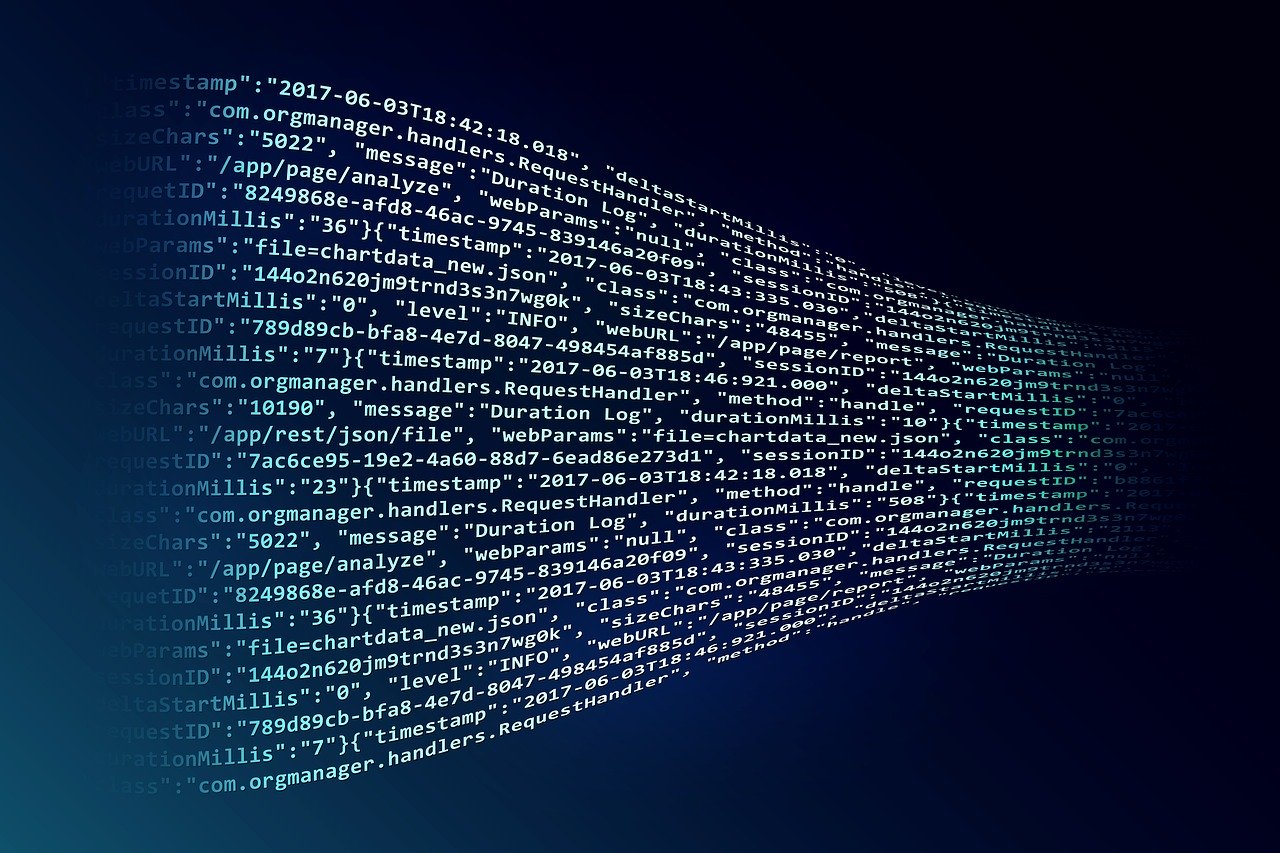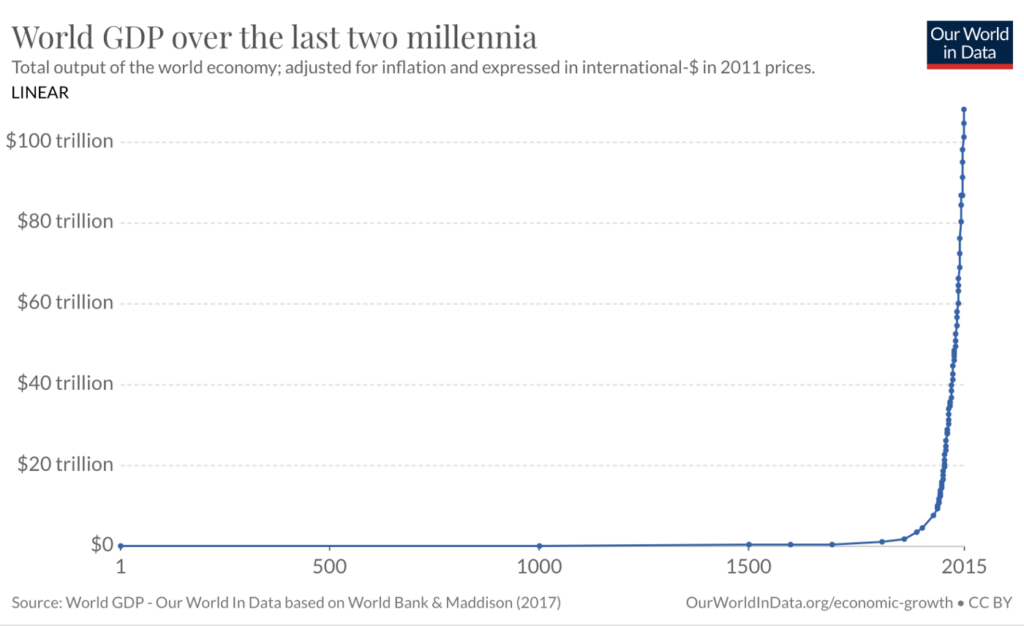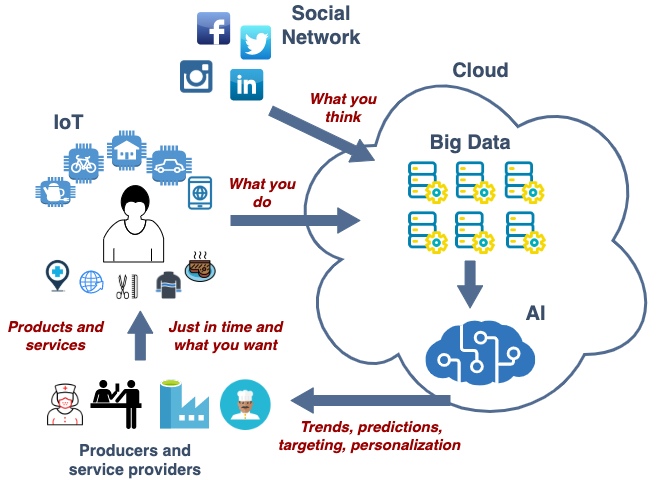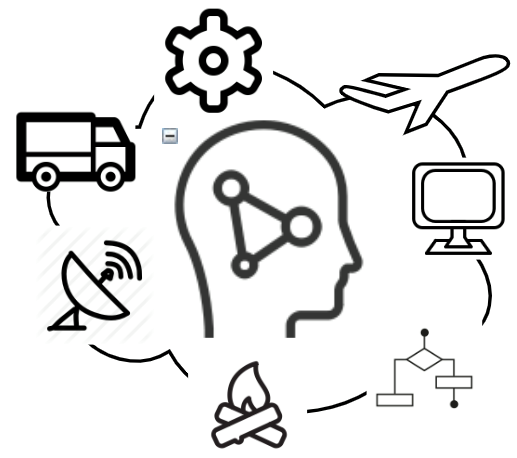
Why Social Networks, IoT, Big Data, Cloud and AI
In this post I will explain in simple words how these technologies are changing the world impacting our personal and professional lives, why the companies providing them are evaluated so high on the market, and what it means for the rest of the business.
Era of technology
We live in the era of technology and while we all kind of know it, just a few of us realize the scale and the speed of the impact, and even fewer embrace it to its full potential. Not surprisingly, the first thing you will read when you go to Andreessen Horowitz VC firm website (one of the best known venture capitals in Silicon Valley) is the motto ‘Software is Eating the World’.
To begin with, let’s look at the following chart showing World GDP over the last 2 millennia [1].

Compared to just 200 years ago, globally today in about 3 days we produce as much product and service as was produced during the entire year! This is mind-boggling. And there are no reasons to think the growth will slow down, most likely it will be quite contrary, the speed of change will only accelerate. In a not so distant future it may be a norm to make your first million dollars in just one day … from an idea to the sold product or service. And technology is and will be the driving force behind it.
Of course speaking about technology we are overwhelmed by new ideas, new startups, and buzzwords. The ratio of successful startup companies is 1 out of 10, i.e. 90% of them fail. But those who made it through have a chance to change our world and make an impact directly or indirectly on literally everyone. And some of those ideas , or technologies which are already changing, and hopefully not literally eating :), the world are: social networks, internet of things, big data, cloud and AI.
So why is technology making such a dramatic impact? Let’s briefly look back yet again into the history of humankind and its turning points. At about 10 thousand years B.C. ancient hunters and gatherers mastered enough skills to settle down, domesticate animals and start producing crops. Later it was called the agricultural revolution. The agriculture-based economy did not provide any significant room for growth, though the flat curve on the World GDP chart for a very long period of time till the industrial revolution in the 18th century.
Since about 1970 a new trend started — economic globalization driven by a long period of peace and international trade. That led to the formation of large international enterprises who embraced economies of scale. And we still hear about economy of scale occasionally. But this is not the economy we live in today…
Data-driven economy of change
We live in the data-driven economy of change.
Due to technological development, digitalization of every aspect of our personal and professional lives, and literally instantaneous speed of information exchange, two factors become vital for any business:
– value of data
– ability to adapt
Value of data
There is a great article ‘ Value of Data: There’s No Such Thing as a Free Lunch in the Digital Economy’ by Wendy C.Y. Li , Makoto Nirei , and Kazufumi Yamana [2] in which authors try to come up with some methodology to literally estimate the value of data as a certain amount of dollars for a few well known companies — Google, Facebook and Twitter. Surely , Google and Facebook ! Why them? Because in case you did not think about it from that perspective — their core products for consumers are free! I mean, you don’t pay Google for using their search engine. And you don’t pay Facebook for staying connected with your friends and family. Yeah, you may say, they make money on advertisements. Correct, but what is at the core of their advertisement business? Right! It is YOUR DATA! But of course it is not ‘yours’ .. though in most cases it serves you well enough in a form of targeted advertisements and deals just right for you. But of course with some exceptions… more on it in a bit later.
Coming back to the value of data. One case discussed in the article mentioned above talks about two companies involved in airline business: ITA Software provides flight tickets reservation service, and Farecast who was buying data from ITA Software and providing demand and price prediction analytics for airline companies. Microsoft acquired Farecast for $110 mln, and Google later acquired ITA Software for $700 mln. Why? Because the data is more valuable than analytics derived from it. How come? Well, because the data does not depreciate! And even more, it may gain extra value in the future from fusing with other data, from using it in newly developed and more sophisticated machine learning models, or by using different aggregation or pattern detection algorithms etc.
Ability to adapt
It seems to be so self-evident so I will give you just one example — fashion brand Zara. Let me quote from Wikipedia [3]:
‘ Reportedly, Zara needs just one week to develop a new product and get it to stores, compared to the six-month industry average, and launches around 12,000 new designs each year. Zara has a policy of zero advertising; the company preferred to invest a percentage of revenues in opening new stores instead ’
As a result, Zara founder Amancio Ortega is reported to be one of the wealthiest people in the world with somewhat $57+ billions. Many think that the key to Zara brand business success is in its speed to bring new products to stores. And constant adaptation built into very core of Zara business model: sale assistants in Zara stores engage in active interactions with consumers asking them what they like, what not, and if it so happens that a consumer does not like colors or models available, they will ask what they would like, take detailed notes and at the end of the day pass that information upward to the corporate department who processes it and use for designing new products. And guess what, a week later, that very same consumer may come to the store and (what a surprise!) find that exact dress she wanted last time.
Technology applied
Finally, here is how it works on a high level.

Social networks
Social networks as a concept and Facebook as a product is a genius invention. Billions of years of evolution made us social beings – humans simply did not survive physically alone in the wild surrounding till very recent. Being excluded from the community meant a death sentence, and while the modern western world is civilized enough to not present physical threats to a lonely soul, our brains are still hard wired for social interactions.
Not by accident, ‘Know yourself’ was inscribed at the entrance into the Temple of Apollo in Delphi where the famous Delphi Oracle was telling fortune. Considering hourly rates charged by the modern psychoanalysts and overall ratio of genuinely happy, in a generic sense, people around us, we can safely assume that ‘knowing yourself’ is still beyond the reach for most of us. But not for Facebook. Our social interactions, likes we give, things we post about, and even time we spent on certain pages speak about us way more than we can imagine. They may even reveal things which we don’t realize in our conscious mind ourselves.
Quote from TheGuardian [4]:
‘ A few dozen “likes” can give a strong prediction of which party a user will vote for … psychology researchers showed that far more complex traits could be deduced from patterns invisible to a human observer scanning through profiles’
Another example, is Google project called Google Flu Trends [5] . Just by analyzing search queries it was able to predict the flu epidemic before official health departments even knew it was coming.
IoT
If Social networks can collect data to build our mental or psychological profiles, smart things monitoring us 24 x 7 in the real physical world will complete the picture with very accurate physical activity profiles. And don’t forget about your smartphone, it is yet another ‘smart thing’ knowing a lot about you. How we sleep (fitbit bracelet), how we feel (music we listen, movies we watch, Alexa analyzing our voice and inferring our emotions), what we eat (UberEat, and a smart fridge very soon), how much we exercise (Nike Adapt smart sneakers), and the list goes on. All this information put together will provide a way more accurate answer to the ‘Know yourself’ challenge than an average person himself.
Big Data
In order to make use of the data collected from your social interactions and monitoring your physical activities it must be put at play. If you think about it, the data itself does not really introduce any innovation. In pre-technology times, intelligent services were achieving similar results by routine surveillance and involving experts to build a psychological profile to identify the ‘weak spot’ and developing a strategy to ‘break down’ the victim. It was just very laborious, expensive and less accurate because of insufficient data.
Now, thanks to computers, the internet and cloud, this data can be collected, stored and processed at massive scale and in a cost-efficient manner. Big data is an umbrella term covering a very wide range of technologies (typically software programs) used to handle and to store very large volumes of data. They evolved with the rise of internet activities as a response to the traditional SQL databases limitation to scale horizontally, i.e. across multiple servers.
Often Big Data solutions are based on some NoSQL data store technology such as Hadoop or Cassandra. Each of those technologies have its own sweet and weak spots, and often a complete solution includes multiple technologies and techniques. One data store technology can be used to capture a massive data stream in real time, and another to run analytics or prepare data for machine learning.
Cloud
The role of Cloud is to provide literally unlimited network, storage and compute resources on demand based on the cost efficient ‘pay as you go’ model. That’s a very simplistic view. Modern cloud providers go way beyond that and provide not just IT infrastructure as a service, but also a platform as a service and special purpose software as a service.
In order to understand the value of the cloud, let’s consider a simple example. Assuming your business needs a database server to store your corporate data. A pre-cloud approach was: procure physical hardware, wait until it arrives (often a few months), install the physical device and connect to your IT infrastructure, install required database software and then ongoing monitoring and maintenance. Often it was taking many months and incurred an upfront cost of at least tens of thousands dollars. Plus the cost of having IT staff, DBA etc.
It was OK in economy of scale, but became absolutely unacceptable in the economy of change. In a cloud, you can provision a database server in a few minutes with a few clicks. And you don’t need to over-provision compute resources (CPU, memory, disk storage) on day one for future growth. You can start small and grow IT infrastructure organically as your business grows due to cloud elasticity and dynamic scaling nature. Cloud eliminated the high entry cost barrier for startup companies working in the IT space enabling the next cycle of innovation.
AI
If you are not familiar with ideas and concepts behind AI, I recommend reading my previous post ‘What is AI’.
After the consumer data is collected and processed, they will be used to train various machine learning models or processed by other AI-driven tools. The output from AI will be used to make more intelligent business decisions, or most likely AI-driven solutions will execute AI-based decisions eliminating humans from the business workflows where it is possible.
After all, if today AI can make paintings and compose music, why could it not design new dresses for Zara? Well, that’s under the condition that Zara will keep up with ever demanding adaptation pace. I would not be surprised if a smart guy with a math degree will build a program which would follow a person on Facebook and then design a dress ‘just perfect’ for her. Oh yeah, and delivered by a drone in 1 hour after the order is made.
What it means for business
Well, Google, Facebook, Amazon, Microsoft and many others already made their choice. They are in a vicious hunt for the data. Any data ..really. We cannot even imagine what possibilities will be enabled by technology in the future but we can make a safe assumption that ‘who owns the data — owns the world’. Maybe the data exchange will surpass the stock exchange. And maybe companies like Facebook will start paying customers for using their service. Or maybe a new social network startup will rise which will collect the data from its users and pay the profit share back to them based on the amount of data they contributed and their value.
Anyway, for more traditional businesses it means that they must embrace technologies right now to start reshaping their business model to be data-driven and AI-first. In this post I focused mostly on the end consumer’s case, but in the B2B model these technologies will play even more important roles.
For example, let’s consider the Supply Chain domain, as almost every business has to deal with it in one way or another. Just a very few use cases where IoT and data-driven AI solutions will be absolutely needed for businesses to survive:
- demand forecast
- stock and replenishment optimization
- global risk management (political, climate etc.)
- logistic cost reduction and optimization
- real time assets tracking
- robotic warehouses
- autonomous trucks
- etc.
Of course, not every business can invest billions of dollars in innovation like Google or Amazon, but thanks to the cloud technologies it is possible to find or build a solution suitable for your business needs and your budget. Start looking at your business from a ‘data’ point of view. Educate yourself and your staff, follow technology trends, be innovative and embrace the change!
Resources referred in this post.
World GDP chart
https://ourworldindata.org/grapher/world-gdp-over-the-last-two-millennia
Value of Data: There’s No Such Thing as a Free Lunch in the Digital Economy
https://www.bea.gov/research/papers/2018/value-data-theres-no-such-thing-free-lunch-digital-economy
Zara brand on Wikipedia
https://en.wikipedia.org/wiki/Zara_(retailer)#Expansion
How Cambridge Analytica turned Facebook ‘likes’ into a lucrative political tool
https://www.theguardian.com/technology/2018/mar/17/facebook-cambridge-analytica-kogan-data-algorithm
Google Flu Trends on Wikipedia
https://en.wikipedia.org/wiki/Google_Flu_Trends
